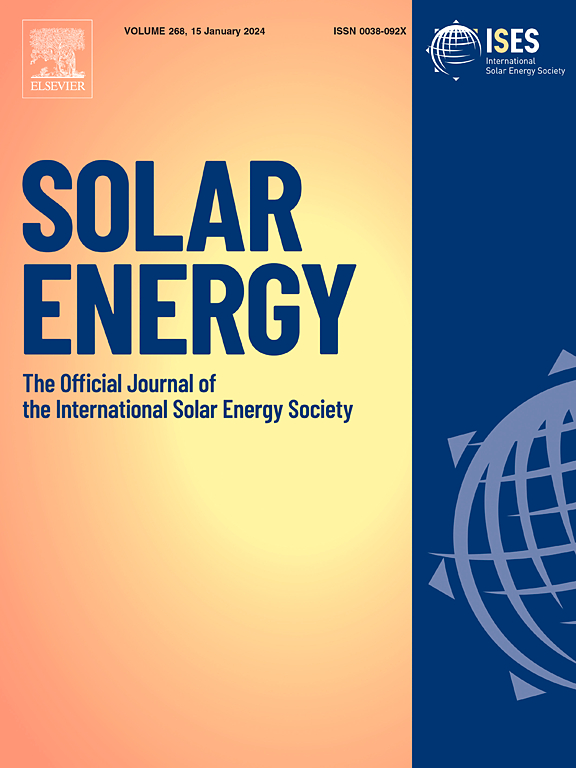Adaptive temperature control for high-precision solar furnace operation
IF 6
2区 工程技术
Q2 ENERGY & FUELS
引用次数: 0
Abstract
Dedicated to the processing and analysis of materials with concentrated solar energy, solar furnaces serve as fundamental tools in experimental contexts. However, the control and precise operation of these systems presents significant challenges due to their nonlinear dynamics, the presence of unpredicted disturbances, and the specific operating requirements of the system. This work presents an adaptive controller based on a Model Reference Adaptive Control (MRAC) methodology for temperature control in solar furnaces. The proposed controller makes progress regarding the existing literature as it outperforms other control strategies in tracking ramping reference signals, which are essential for thermal cycling processes in solar furnaces. Moreover, this solution only includes two additional tuning parameters to the conventional Proportional, Integral, and Derivative (PID) control structure used in these systems, facilitating its application in daily operations. The MRAC controller was rigorously tested and compared with traditional PID solutions used in solar furnaces in a simulated environment using actual data and a validated nonlinear model. Furthermore, the MRAC strategy was tested in the existing solar furnace SF60 at the Plataforma Solar de Almería (Spain). The proposed controller demonstrated substantially lower error metrics than conventional strategies in simulation, reducing the IAE by approximately 75% and 50% compared to the PID and adaptive PID controllers, respectively, and achieving an RMSE of only 0.5 °C. Moreover, it showed promising performance in addressing real-world operational challenges. These achievements validate the proposed adaptive MRAC strategy and position it as a valuable tool for regular operations.
高精度太阳炉温自适应控制
利用聚光太阳能对材料进行处理和分析,太阳能炉是实验环境中的基本工具。然而,由于这些系统的非线性动力学,不可预测的干扰的存在以及系统的特定操作要求,这些系统的控制和精确操作提出了重大挑战。本文提出了一种基于模型参考自适应控制(MRAC)方法的太阳能电炉温度控制自适应控制器。所提出的控制器在现有文献的基础上取得了进展,因为它在跟踪斜坡参考信号方面优于其他控制策略,而斜坡参考信号对于太阳能炉的热循环过程至关重要。此外,该解决方案仅包含两个额外的调谐参数,用于这些系统中使用的传统比例,积分和导数(PID)控制结构,便于其在日常操作中的应用。利用实际数据和验证的非线性模型,在模拟环境中对MRAC控制器进行了严格的测试,并与传统的PID解决方案进行了比较。此外,MRAC策略在西班牙太阳能平台Almería现有的SF60太阳能炉中进行了测试。在仿真中,所提出的控制器比传统策略的误差指标低得多,与PID和自适应PID控制器相比,IAE分别减少了约75%和50%,RMSE仅为0.5°C。此外,它在解决实际操作挑战方面表现出了良好的性能。这些成果验证了所提出的自适应MRAC策略,并将其定位为常规操作的宝贵工具。
本文章由计算机程序翻译,如有差异,请以英文原文为准。
求助全文
约1分钟内获得全文
求助全文
来源期刊

Solar Energy
工程技术-能源与燃料
CiteScore
13.90
自引率
9.00%
发文量
0
审稿时长
47 days
期刊介绍:
Solar Energy welcomes manuscripts presenting information not previously published in journals on any aspect of solar energy research, development, application, measurement or policy. The term "solar energy" in this context includes the indirect uses such as wind energy and biomass
 求助内容:
求助内容: 应助结果提醒方式:
应助结果提醒方式:


